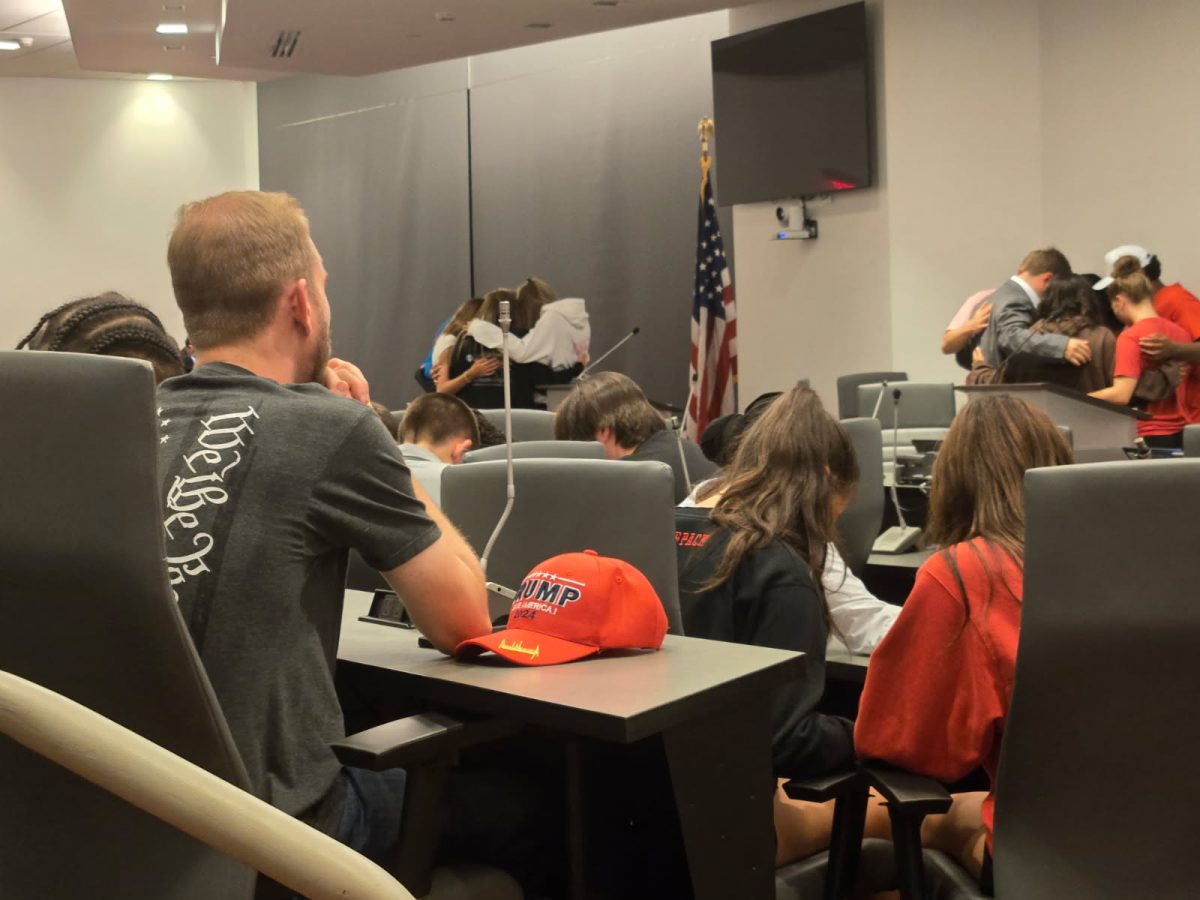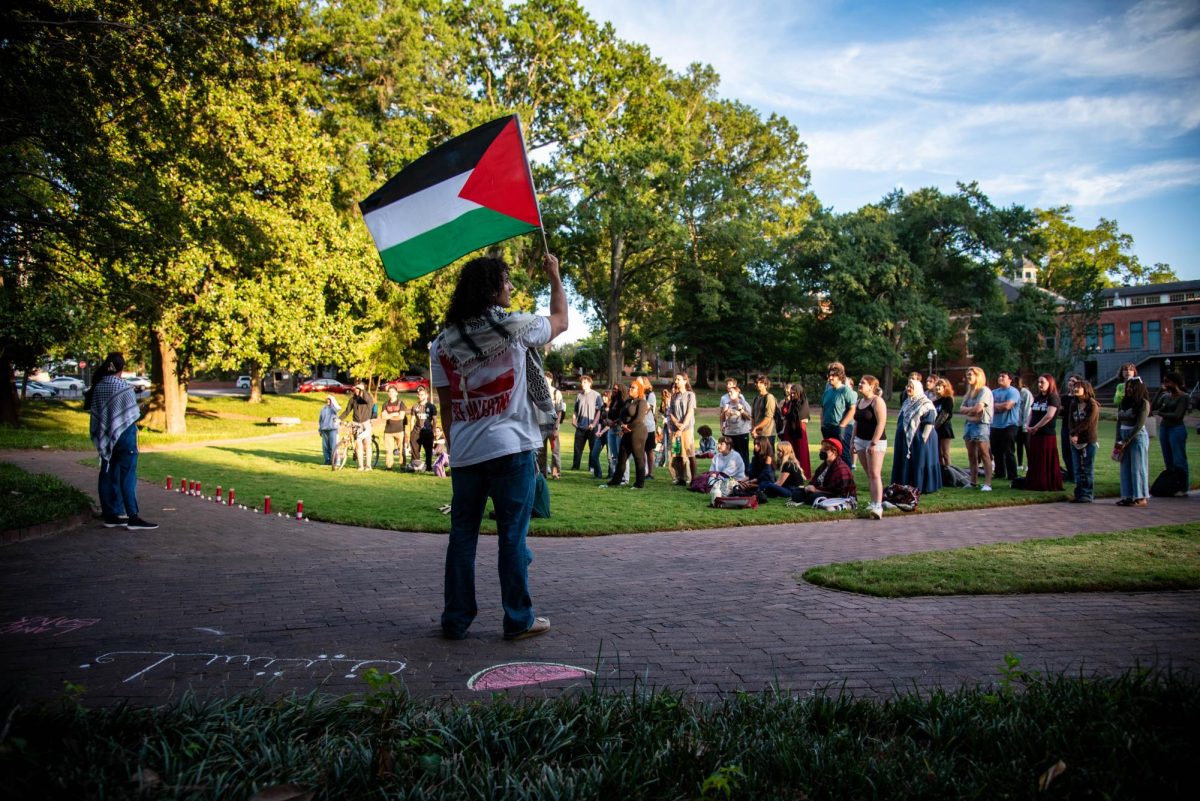In light of the recent offensive material spray-painted in the Free Expression Tunnel, six professional panelists and student leaders from campus organizations discussed the material’s tie to the First Amendment.
Greg Wallace, a constitutional law professor at Campbell Law School, pointed out that although the nature of the depiction was offensive and racist, it was still protected speech.
“The government cannot prohibit speech just because someone is offended by it. The Court has said offensive speech is still protected … [and they] have never created an exception for offensive speech or hate speech,” he said.
Associate Director for Student Conduct Turi Plisch talked of how the University is a governmental institution, commenting on the fact that because we are a federally funded university, unfortunate events like racist material is still protected under the First Amendment.
“We’re still bound by the Constitution. We’re not going to run contrary to the Constitution … because we are a public institution,” Plisch explained. “[However, this] doesn’t display the values at N.C. State.”
Jose Picart, vice provost for diversity and inclusion at N.C. State, expressed sadness that N.C. State has experienced yet another example of hate speech, saying, “As for the tunnel, I could sleep a lot easier if it were not there. … In practice, in reality, I’m disappointed to say I wouldn’t bring anyone to the tunnel.”
However, Picart later included his opinion on whether or not the tunnel should be done away with, saying, “I didn’t say the tunnel should be eliminated … [but] I would like to see it transformed in some way.”
Student leaders who attended discussed what N.C. State should do in response to the incidents during the Presidents’ Roundtable.
Many students suggested an increased form of security around the tunnel. Other ideas surrounded surveys asking students their concerns, campaigns denouncing hate speech and diversity classes that aim to educate students on the importance of diversity.
Natasha Vos, a senior in animal science and poultry science, said in order to successfully move forward, positive values must be reinforced from all walks of campus, and that N.C. State must also consider the harmful effects on individuals.
“Change needs to come from the top-down and the bottom-top,” said Vos. “Sometimes [people] get so caught up in how it affects the University, [they] forget the impact on individuals.”
Panelists expressed the concern regarding the promotion of positive campus values as well.
”Fundamental education is about taking our values and shaking them up…but at what cost to those of us on campus? And is it worth it?” Picart asked.
Responding to this question of where the line should be drawn in challenging values, Wallace advocated for an increase in speech.
“The cure for bad speech isn’t less speech but more speech … there’s great value in that,” said Wallace.
Although restriction of free speech is unconstitutional, Picart pointed out the problems unrestricted free speech is creating at N.C. State.
“Free speech is not free. There are consequences [to actions], and sometimes they are very negative … [and] they hurt our image,” he said. “You can do a lot of positive things … but if you do one negative thing, there is a cost. Somebody paid a price to give us free speech. I think we’ve got to start communicating other values positively.”
Tony Caravano, an N.C. State graduate who served as student body president for two terms, furthered the discussion about taking action when such events affect a campus.
“Our actions, they matter … actions matter more today than they ever have before,” Caravaro said.




